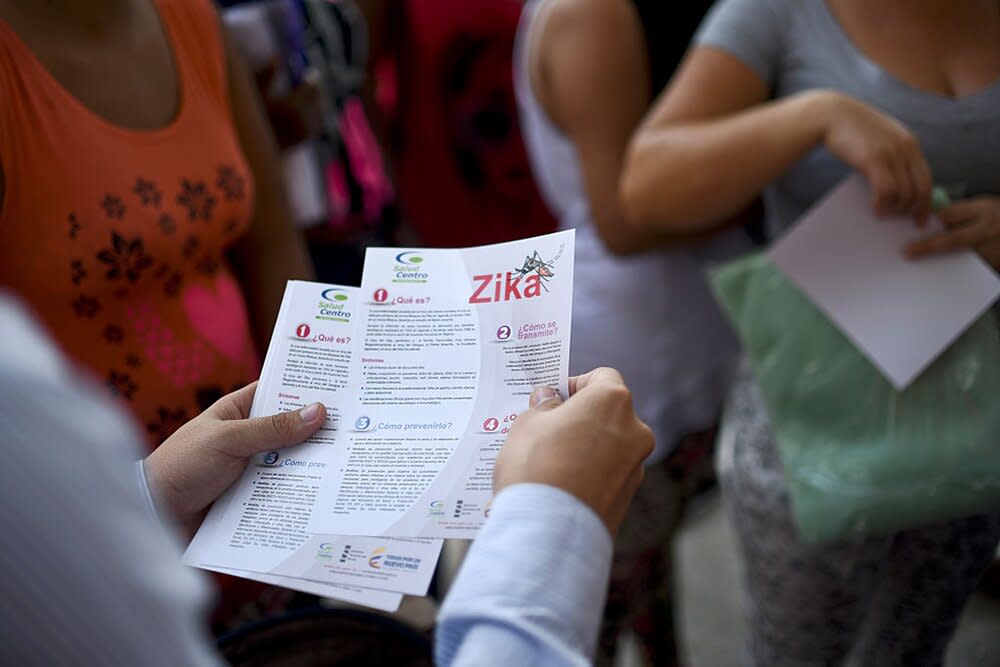Study Links the Zika Virus to Guillain-Barre Syndrome

Luis Robayo/Getty Images
Many of us have heard that the Zika virus may be linked to a neurological syndrome called Guillain-Barre that causes paralysis for weeks or even years. Now a new study provides a more definitive link between the mosquito-borne illness and this scary side effect.
According to CNN, researchers looked at a previous outbreak of 32,000 cases of the Zika virus in French Polynesia between 2013 and 2014 and discovered an uptick in the number of cases of Guillain-Barre. Specifically, 42 cases of the muscle-weakening syndrome were noted. A pretty convincing link between Guillain-Barre and the Zika virus is suggested by the fact that 98 percent of those patients had antibodies to the virus, suggesting they had been exposed to it. Also, 88 percent of those patients experienced symptoms we now understand result from Zika infection, namely fever, rash, and joint pain.
The newest outbreak of Zika in Brazil and other South American and Caribbean countries also has coincided with an increase in the number of cases doctors are seeing of Guillain-Barre, which causes a range of symptoms from tingling in the extremities to long-lasting muscle paralysis. In the current study, 74 percent of patients experienced muscle weakness, 64 percent being in facial muscles. Twenty-nine percent needed assistance to breathe; none of the patients died, and 57 percent were able to walk on their own within three months.
Dr. Tom Frieden, director of the Centers for Disease Control and Prevention, said, "Given the time course of clusters of Guillain-Barre after peak Zika virus infection, I think most epidemiologists would say it's certainly related."
Other viruses have been known to bring on the autoimmune disorder, including the mosquito-borne illnesses West Nile and Japanese encephalitis.
It's important to point out that people who do get infected with the Zika virus, which can also be sexually transmitted, rarely come down with Guillain-Barre. The syndrome itself is exceedingly rare, infecting just one in 100,000 people, according to CNN. The concern is that if we start to see more Zika infections in the U.S. as warmer months breed Aedes aegypti-carring mosquitoes, it may become less rare, affecting as many as one in 4,000 people who get the virus.
It is not known why some people get Guillain-Barre and some don't.
Similarly, though an alarming rise in the number of babies being born with smaller than average heads and brain damage, a condition called microcephaly, has been noted among populations experiencing Zika outbreaks, we don't know for sure if the virus is to blame. We also don't know why some babies born to infected moms get microcephaly, and some don't.
What we do know is that pregnant women are being advised not to travel to areas where outbreaks are taking place, and that they should use condoms with a partner who has traveled to an affected area.
President Obama also recently asked Congress for almost $2 billion for research toward a vaccine, providing hope that among all this terrifying news, there is hope for a cure.
Melissa Willets is a writer/blogger and a mom. Follow her on Twitter (@Spitupnsuburbs), where she chronicles her love of exercising and drinking coffee, but never simultaneously.

